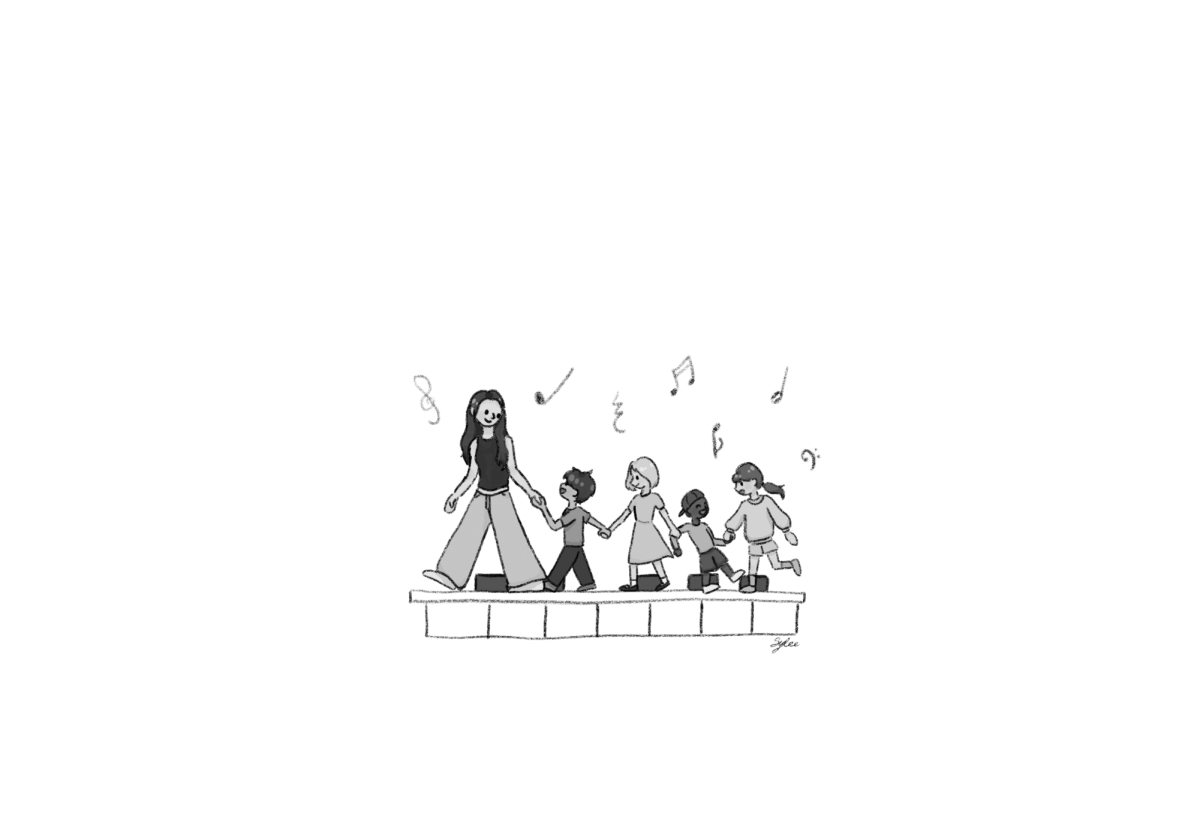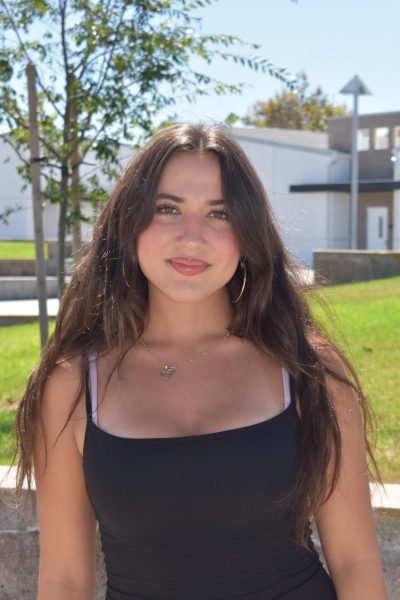In kindergarten, my teacher gave us little white boxes to hold the books we would read in class. I didn’t know it at the time, but the assignment to decorate the box using my favorite color, which was supposed to be simple, presented a struggle that would reoccur throughout my life. In that moment when I had to choose a color, I found myself torn between picking a color that might impress other people or sticking with my actual favorite.
I colored the box blue. Then I went home to my room that had pink walls, a pink bed frame, and in the corner sat my pink Barbie dreamhouse.
The feeling that I needed to lie about my favorite color stemmed from the notion that pink was a girl color. Since the day I was born, a pink headband has been placed upon my head, so I felt a certain attachment to it. Pink felt like my own, up until I started going to school and realized that all of the other girls had the same affection for pink that I did; so much so, that the expectation for girls was that pink was their favorite color. I wanted to defy those expectations and be unique.
Blue was my color of choice because I felt like it was on the opposite end of the spectrum. Blue was a “boy color,” meaning it was the furthest possible thing from pink.
As I grew older, this pressure to feel unique only intensified. Growing up with social media, my impressionable mind saw countless opinions, critiquing everything from the music you listen to, to the shoes on your feet. I became very self conscious and aware of how I presented myself. Suddenly, the clothes my mom bought me weren’t good enough and I traded my rolling backpack for a black Jansport bag.
Fueled by a need to stand out, I always strived to differentiate myself from others, but I never stopped to think if I was forcing this uniqueness onto myself. Did I actually like these things that I was building my personality around?
This minor identity crisis went far beyond my favorite color. The music I listened to, the clothing I wore, and even my humor were all carefully fabricated to project the person that I wanted to be: a person that I found unique.
I thought that by finding niche interests I would develop a more individual identity, and in a way, I was seeking validation. Especially during middle school, a stigma grew around the word basic. Being basic became an insult. If you were called basic, it was a shot at your individuality, or lack thereof. It insinuated that you just followed trends and that there was nothing original about you.
If someone asked me my favorite song, I felt pride in answering with a song they’d never heard of. That way, they couldn’t accuse me of being basic. While my friends hung posters of Taylor Swift on their walls, I began listening to Joan Baez, U2, and The Smashing Pumpkins, a lot of which I heard from my parents.
Towards the end of middle school, I became so exhausted from keeping up with all the things that I “liked.” I also started to realize that everybody is so focused on themselves to care about the things I was obsessing over. All of these traits I curated for myself didn’t make me cooler in the eyes of others like I thought they did.
So, I stopped worrying about what others would think if I sang along to Blank Space in the car with my friends. It felt liberating to unleash the lyrics that were stuck in my head. The walls that I had built between me and all things basic began to crumble.
On Christmas during my freshman year, under our tree was a box containing a pair of coquette UGG slippers — the ones that everyone has. I slid them on and we instantly became an inseparable duo. They were too comfortable to only wear them at home or keep them in my closet, so I wore them to school. All I got was compliments, not one negative thing about them, so what was I so afraid of?
This became the gateway to all things basic. Slowly, my life became filled with Sol de Janiero, Stanley tumblers and Garage tank tops. I’ve come to love celebrating the long-awaited return of the pumpkin chai latte every year with all of my friends.
Music is one thing that I’m happy I forced myself into finding a more unique taste in. Without cruising Spotify looking for lesser-known artists, I never would have started listening to so many bands that I adore. Eventually, my playlists began to blend into a mix of popular songs and songs that I found on my own.
While I’ve discovered so many great things while trying to be unique, I will never again shy away from what’s basic. I’ve learned I’m happiest not caring about what’s popular and what’s not, so I can focus on finding what I love.



